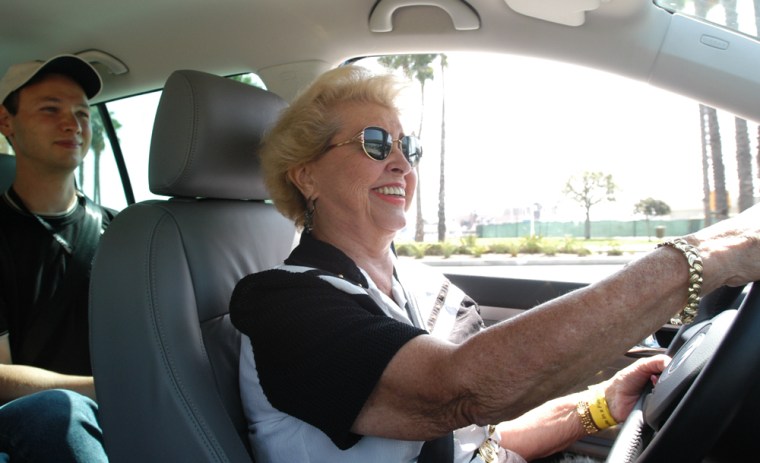Safety concerns weren't an issue the next day, when the rally stopped in Long Beach at a convention of city officials from across California.
The officials and members of the public got a chance to drive the cars, and many of those who did were ready to become what sociologists call "early adopters."
Allan Gauntlett, a retired engineer, had been reading about fuel cell cars and had dabbled in electric vehicles in the 1970s. Having heard about the rally, he drove to Long Beach from nearby Costa Mesa to see for himself.
"Finally, the cars look like they should," he said, contrasting what he drove here with a 1970s VW whose back seat was taken up by batteries in order to make it electric.
Gauntlett, 80, did have one lament: that in 10 years, when some automakers hope to have fuel cell cars on the market, "I'll be a little too old to drive."

Paul Morris, a councilman for the city of San Pablo, said he wasn't expecting anything that would make him give up his GM Silverado pickup or Mercedes 300 Turbodiesel. But a test drive changed his mind.
"It has great acceleration," he said while driving Nissan's fuel cell SUV.
"Overall, I was very, very impressed. ... I would seriously consider one," he added later. "It was totally different from what I had pre-conceived ideas of."
Enthusiasm vs. obstacles
But few enthusiasts left understanding the obstacles to widespread use of fuel cell cars:
- That hydrogen is more flammable than gasoline and requires additional safety procedures
- That the cheapest, and thus dirtiest, hydrogen is still two to three times more expensive than gasoline
- That the range of these vehicles is still half that of gasoline-powered cars
- That fuel cell stacks still are prohibitively expensive.
Joseph Romm, who headed the U.S. Energy Department's hydrogen research during part of the Clinton administration, wrote about those hurdles in his book, "The Hype about Hydrogen."
He didn't participate in the rally, but he's familiar with the excitement that the technology generates.
"I like the California Fuel Cell Partnership and I praise their work in my book," he said, but it's "wildly premature" to say a fuel cell future will happen.
"We're nowhere near where we need to be either on the fuel cells, the hydrogen storage or low-cost, renewable hydrogen," Romm said. Unless at least two of those three fronts achieve breakthroughs, he said, society should focus more on gasoline-electric hybrids as a way to reduce smog and gases tied to global warming.
